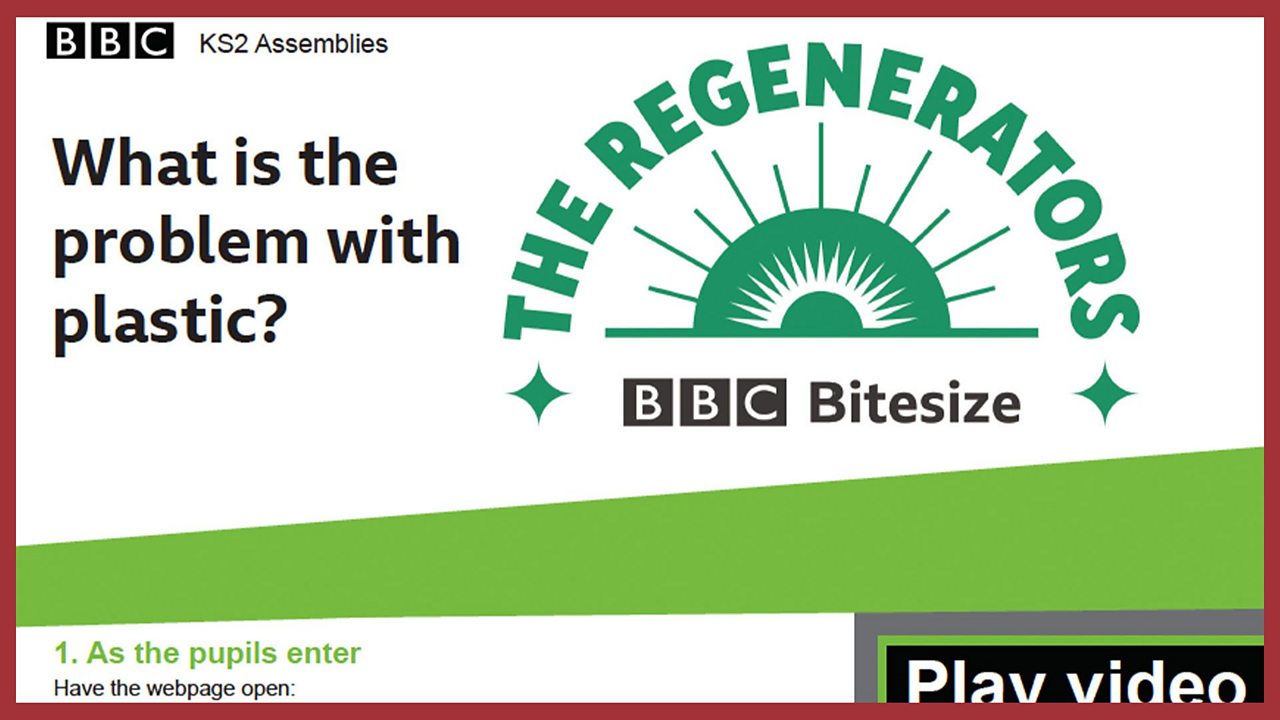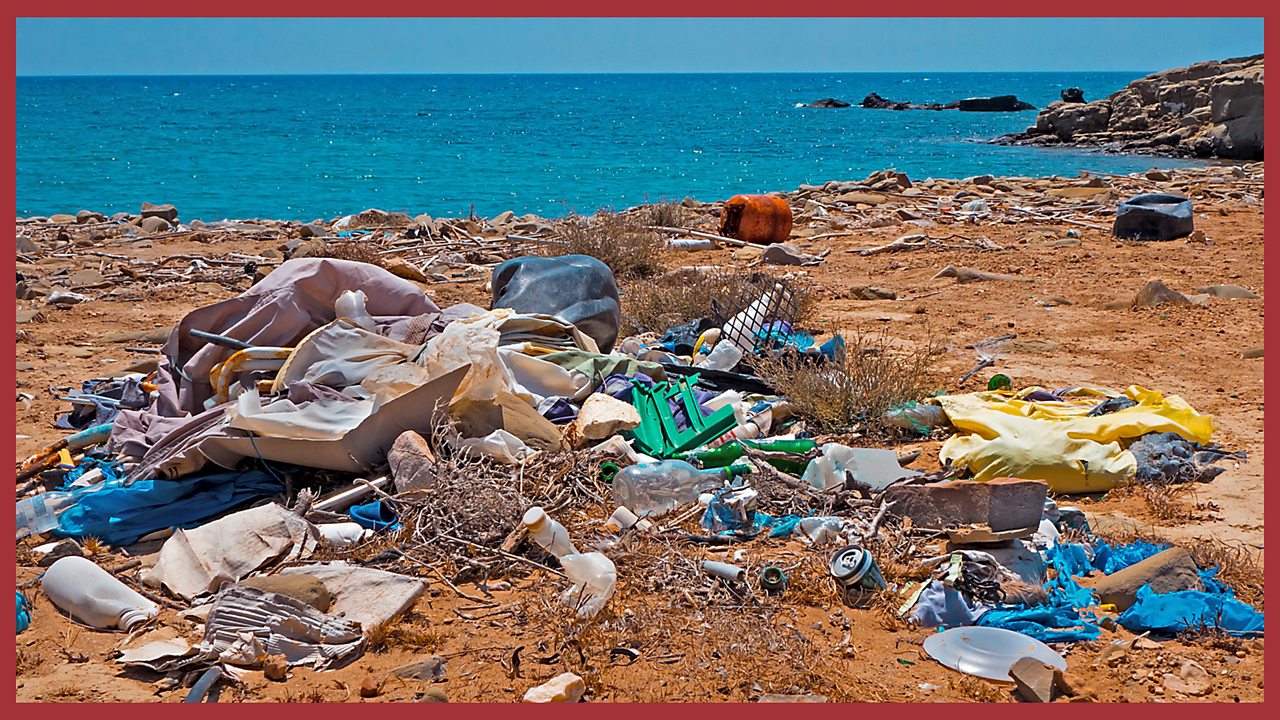The Regenerators: What is the problem with plastic?
Themes: Recycling; caring for the planet; beautiful nature; pollution.
Summary: This assembly explores some of the problems with plastic in the environment and what can be done to help. It is part of The Regenerators - an initiative to inspire 5-16 year olds across the UK to lead a greener lifestyle and thrive in a more sustainable world.
Resources: the framework to download / print, a picture of rubbish polluting a beach and an animated poem that explains why plastic pollution is harmful and how to reduce it. It also includes many poetic features which students can learn from and try in their own writing.
The video
This assembly features a video that explains why plastic is a problem. Plastic is used for many everyday items because it is cheap, flexible and durable. However, plastic takes a long time to break down in the environment - and even when it does it remains as plastic, in smaller pieces.
A lot of the plastic we use ends up in the seas and oceans. Plastic pollution at sea can poison animals, ruin their habitats and make it harder for them to find food.
But there are things that we can all do to help - including using less plastic, re-using plastic that we already have or recycling plastic that we can no longer use.
Duration: 02' 23"
Final words: '...and no more 400-year old bananas in the sea.'
Video questions
- What happens to a real banana over time in the environment? (It turns brown, rots and breaks down into the soil)
- What happens to plastic over time in the environment? (It can take hundreds and hundreds of years to break down - and even then only into smaller bits of plastic)
- What can happen to plastic in the sea? (Sea creatures can confuse the plastic for food and eat it, or they may get trapped in plastic waste)
- What is the problem with burning plastic? (It pollutes the air and harms wildlife)
- What changes can people make to help? (Reduce (use less), re-use or recycle plastic)
Key resources
1. Entry music
You could play the sound of the sea (search online for 'ocean sounds') or try BBC Earth, 'Ten Hours of Relaxing Oceanscapes' (also in the Related links section below) or the publicly-available BBC Sound FX library (again, also in the Related links below).
2. Introduction
Display the image of plastic waste on the seashore. Encourage pupils to identify different items. How many different plastic objects can they spot in the rubbish? What else do they think might be there? Ask: 'How do you think all these things got to the beach?' Gather pupils' responses and establish that, unless we take care, a lot of what we throw away finally ends up in the sea. Much of this rubbish, especially plastic, will stay around for hundreds of years unless we do something about it.
3. The video
Play the video. The duration is 02' 23” and the final words are: '...and no more 400-year old bananas in the sea.'
4. Time to talk
Lead a discussion by posing questions such as:
- Why is recycling so important?
- What stops people recycling things?
- Why do we throw so much stuff away?
- How can we reduce the amount that we use and get everyone to recycle more?
You could suggest that as a follow-up to the assembly pupils (and teachers) explore The Regenerators, including lesson ideas for children aged 5 to 7 and children aged 7 to 11.
Ask: Is there something you could do to help recycle plastic or to reduce plastic waste? Encourage pupils to suggest things they could do.
5. Opportunity to sing
If your assembly is to include a song this would be a good time for it. Suggestions from BBC collections below.
6. Opportunity to reflect
Our world is full of beauty...full of animals...and trees...and plants...and great wide oceans...
But it is fragile too and easily damaged...
Today, let's all think of ways to keep our beautiful planet healthy and unpolluted, for the animals and plants and children of tomorrow.
Or use the animated poem in the 'Key resources' section. The video explains why plastic pollution is harmful and how to reduce it. It also includes many poetic features which students can learn from and try in their own writing.
7. Opportunity for prayer
Use your standard form of address ('Dear God', etc) and:
We thank you for our beautiful world, with its animals and trees and plants and great wide oceans.
We know it is fragile and easily damaged.
Help us today to find ways to keep our beautiful world healthy and unpolluted, for the animals and plants and children of tomorrow. Amen.

